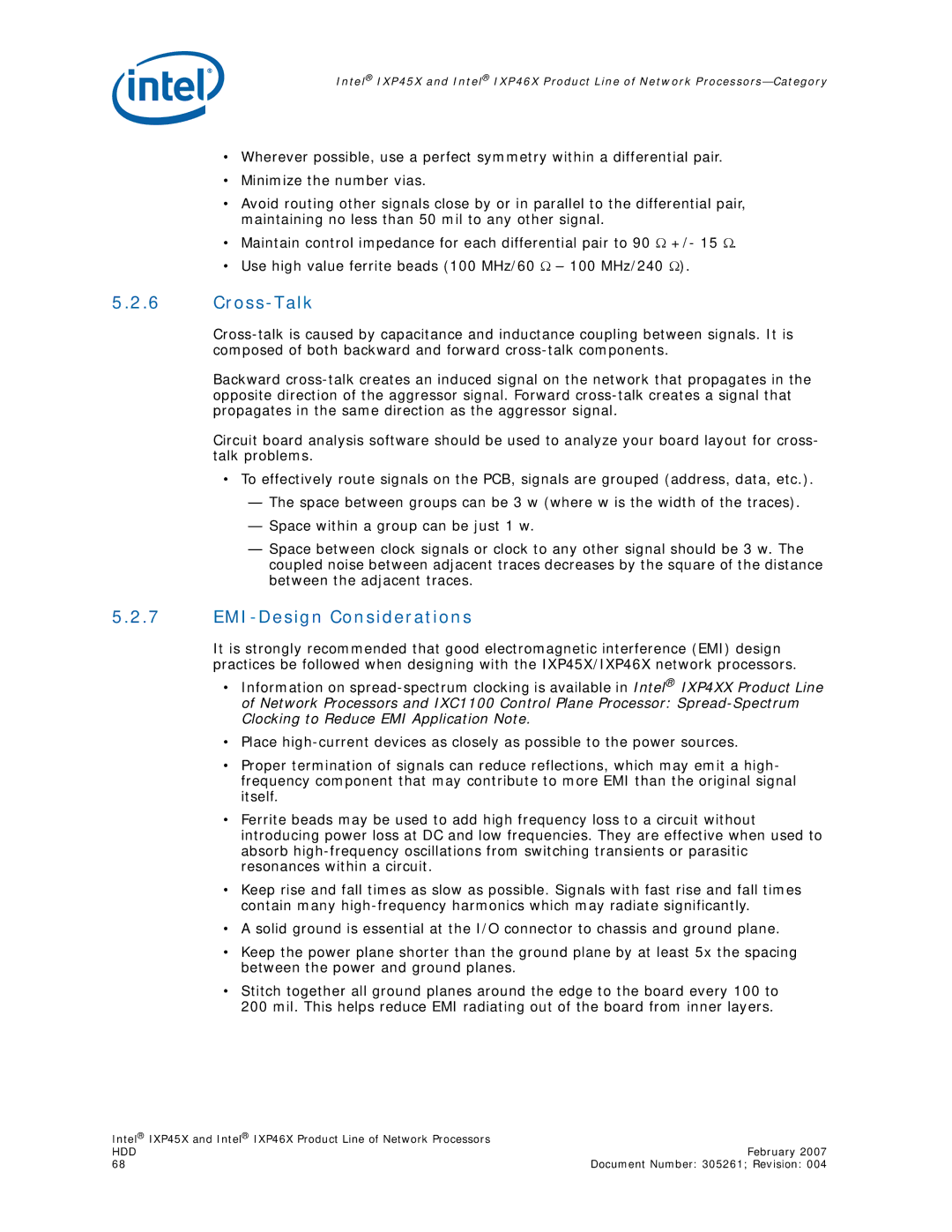
Intel® IXP45X and Intel® IXP46X Product Line of Network
•Wherever possible, use a perfect symmetry within a differential pair.
•Minimize the number vias.
•Avoid routing other signals close by or in parallel to the differential pair, maintaining no less than 50 mil to any other signal.
•Maintain control impedance for each differential pair to 90 Ω +/- 15 Ω.
•Use high value ferrite beads (100 MHz/60 Ω – 100 MHz/240 Ω).
5.2.6Cross-Talk
Backward
Circuit board analysis software should be used to analyze your board layout for cross- talk problems.
•To effectively route signals on the PCB, signals are grouped (address, data, etc.).
—The space between groups can be 3 w (where w is the width of the traces).
—Space within a group can be just 1 w.
—Space between clock signals or clock to any other signal should be 3 w. The coupled noise between adjacent traces decreases by the square of the distance between the adjacent traces.
5.2.7EMI-Design Considerations
It is strongly recommended that good electromagnetic interference (EMI) design practices be followed when designing with the IXP45X/IXP46X network processors.
•Information on
•Place
•Proper termination of signals can reduce reflections, which may emit a high- frequency component that may contribute to more EMI than the original signal itself.
•Ferrite beads may be used to add high frequency loss to a circuit without introducing power loss at DC and low frequencies. They are effective when used to absorb
•Keep rise and fall times as slow as possible. Signals with fast rise and fall times contain many
•A solid ground is essential at the I/O connector to chassis and ground plane.
•Keep the power plane shorter than the ground plane by at least 5x the spacing between the power and ground planes.
•Stitch together all ground planes around the edge to the board every 100 to 200 mil. This helps reduce EMI radiating out of the board from inner layers.
Intel® IXP45X and Intel® IXP46X Product Line of Network Processors |
|
HDD | February 2007 |
68 | Document Number: 305261; Revision: 004 |
